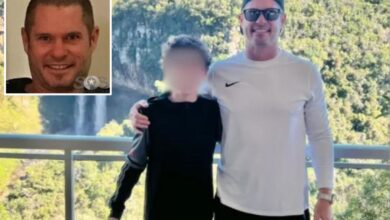Inside Korea’s Tragedies’ on Netflix, a Documentary Series About Awful National Scandals
Netflix’s The Echoes of Survivors: Inside Korea’s Tragedies is a follow-up to and expansion on the streamer’s 2023 documentary series In the Name of God: A Holy Betrayal, producer Jo Sung-hyun’s exposé about a series of scandals perpetrated by Korean religious leaders. The first series resulted in the incarceration of Christian Gospel Mission cult leader Jeong Myeong-seok on multiple counts of sexual assault, and Echoes of Survivors – two episodes of which follow up on recent developments in the story; the remaining six explore different topics – was the subject of a lawsuit, an attempt to block the release of the series, that was thrown out of court. That particular saga isn’t where Echoes begins, though – it opens with a two-parter about Brothers’ Home, a government-backed facility in Busan where countless abuses and deaths occurred, many of them children, in the 1970s and ’80s.
Opening Shot: An establishing shot of a dark night, with a bright full moon, outside an ominous building.
The Gist: We don’t see the disclaimer until the end of the episode, but it probably should be at the beginning, for transparency’s sake: Some of what we see here consists of staged reenactments with actors, but the testimonies are 100 percent true. Whether that applies to the talking-head interviews by survivors who revisit the place where they endured who knows how many months or years of abuse and torture, and wear the same style tracksuits they were forced to wear back then? Not certain. They seem too raw and emotional to be actors, but we can’t be sure, and that disclaimer significantly undermines the series’ credibility. This is a problem.
There’s no argument that this story deserves to be out in the open: Testimonials outline how Park In-geun started Brothers’ Home as an “asylum” for “vagrants,” allegedly to assuage the rampant homelessness in Busan in the 1970s. In reality, he employed police to round up unattended elementary- and middle-school-aged children – some whose parents, say, innocently left them on a park bench just for a few moments – for slave labor in factories. It’s also not much of a stretch to assert that they were gathered simply to be the subjects of draconian abuse at the hands of sadists who routinely beat, raped or murdered children. Why? Who knows. Who can explain the nature of true evil?
The first hour of this two-hour story consists primarily of testimonials from survivors. Choi Seung-u, interviewed in an inmate’s uniform with his hands tied, says he’s been deemed guilty of 39 convictions; he recounts horrible details about the sexual abuse he endured at Brothers’ Home as a child, with disarming matter-of-factness. Han Jong-seon shares how he and his sister were taken and separated, and severely beaten if they tried to see each other at the facility; we meet her today, and she’s psychologically debilitated, likely from being forced to take large doses of antipsychotics while in the home. Eom Nam-hyeon shares how his deaf, nonverbal brother disappeared and was killed at Brothers’ Home; his father was a prominent businessman, proving that even people living in mansions couldn’t leverage their wealth against this nastiness.

What Shows Will It Remind You Of? One of the survivors looks at the bunks and says, “This looks straight out of Squid Game.”
Our Take: Echoes of Survivors is problematic right off the bat – if these aren’t actors we’re seeing, aren’t the real-life survivors enduring unnecessary psychological hardship by not just seeing where they were abused, but wearing the same clothing? They frequently break down on camera – moments that could very easily be edited out – and some recount their stories with empty-eyed stares. This series is manipulative at best, and crass exploitation at worst. Is there not a better way to create a documentary about this subject? The testimonials are stomach-churning; their presentation doesn’t need to be disturbing, too.
Sex and Skin: Graphic descriptions of sexual violence.
Parting Shot: A title card revealing that the son of Park In-geun will speak in the next episode: “I am here because I want to reveal the truth,” he says.
Sleeper Star: As ever, real-life survivors of such ordeals deserve praise for bravely sharing their stories in order to comfort others with similar experiences, and to hopefully prevent history from repeating itself.
Most Pilot-y Line: One of Park In-geun’s supporters appears on camera hails the guy as a hero: “Back then… it was necessary,” he says of the attempt to solve “vagrancy” in Busan.
Our Call: As informative and necessary as these stories of institutional abuse of power can be, The Echoes of Survivors is far too questionable in its journalistic ethics to warrant a recommendation. In a word, yuck. SKIP IT.
John Serba is a freelance writer and film critic based in Grand Rapids, Michigan.
Credit to Nypost AND Peoples



